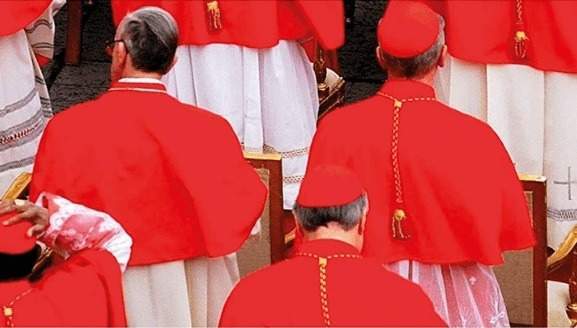
Rasika Sittamparam reviews Frederic Martel’s giddying tale of power, homosexuality and lies in the closet of the Catholic Church
This is an epic study, based on exhaustive research, by the journalist and sociologist Frederic Martel. It adds up to a blistering critique not just of the Catholic Church, but of organised religion in general. The central claim of the book is that refugees and migrants who risked their lives by crossing the Mediterranean now exist within a secret sex economy in and around the Vatican. This arrangement is propped up by the appetites of members of the Catholic Church.

Martel’s poignant yet colourful conversations with more than 60 migrant prostitutes create a powerful picture, and tell us that priests indulge in regular affairs with this demographic of mainly Muslim heterosexual men. One example is the distressing case of a 21-year-old escort called Mohammed who left Tunis for Naples via Sicily before reaching Rome, where he’s now ‘condemned to prostitute himself with men every evening near Roma Termini station just to survive’. Martel states that most of Mohammed’s clients are priests and prelates connected to the churches of Rome or the Vatican, and have selected him for his vulnerability.
The problem isn’t confined to Rome. Martel’s book has taken him throughout the Catholic world. His interviews with 1,500 sources in 30 countries suggest that gay priests are not only on the fringes as previously thought, but make up almost 80 per cent of Vatican staff.
It transpires that those priests who are most vocally homophobic are usually those most likely to have homophilic tendencies in private. Martel, who is gay, reminds us that in such instances, the crime is twofold. As well as the crimes themselves, the homophobia used as a smokescreen has frequently led to persecution, torture and death of gays.
Take the late Colombian Cardinal Alfonso Lopez Trujillo, who opposed homosexuality and contraception while exercising sexual violence towards rent boys in Medellin. He was allegedly behind the executions of dozens of priests and bishops by Pinochet’s paramilitary brigade.
Martel’s storytelling is at times trite, but the power of his accusations keeps you reading. If there is a silver lining anywhere, it is in the rift between this pontificate and his predecessor. Pope Benedict XVI, in his unfêted retirement, recently blamed the gayness of the ‘Swinging Sixties’ for the whole fiasco.
The confidence and detail with which Martel narrates the crisis will be enough to cast an even darker cloud of suspicion over an already troubled institution.







